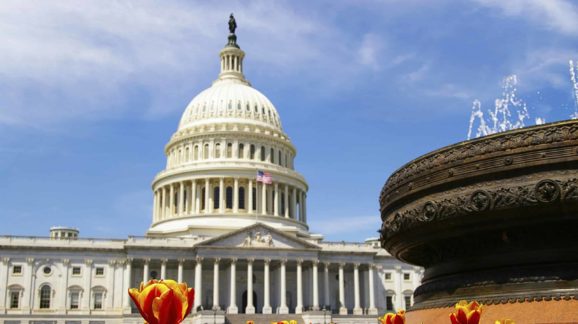The Paris Climate Agreement Is a Treaty Requiring Senate Review
Why and How Congress Should Fight President Obama’s Power Grab

Full Document Available in PDF
President Obama claims the recently adopted Paris Agreement on climate change is not a treaty but rather an executive agreement—a pact he can approve on his sole authority, with the stroke of a pen. Why is he doing this? Because if he were to follow the constitutional treaty-making process, and submit the agreement to the Senate for its advice and consent, the treaty would be dead on arrival.
In fact, the Paris Agreement is a treaty. That is the only reasonable conclusion based on U.S. historic practice, the Agreement’s potential costs and risks, its prescriptiveness and “ambition” compared to predecessor climate treaties, and international protocol, including recent instructions from the United Nations Climate Change Secretariat to the Conference of the Parties of the United Nations Framework Convention on Climate Change (UNFCCC).
Obama claims the Paris Agreement is not a treaty because America’s emission-reduction commitments under it are “non-binding.” That is a non sequitur. Our emission-reduction commitments under the Senate-ratified UNFCCC are also non-binding, yet no one disputes that the UNFCCC is a treaty.
The administration readily admits that parts of the Agreement are indeed “binding”: the procedural (reporting and monitoring) commitments, just not the substantive (emission-reduction and climate finance) commitments. But for the United States, that is a distinction without a difference. Americans expect their government to keep all solemn promises, whether or not those are deemed legally binding. Under the Paris Agreement, nations honor their “non-binding” promises by turning them into binding domestic laws and regulations.
Some in Congress, including some conservative lawmakers, may be tempted to dismiss the Paris Agreement as a paper tiger because it imposes no penalties for non-compliance. Yet by doing so, they overlook what chiefly determines climate and energy policy: politics.
Far from being toothless, the Paris Agreement is the framework for a multi-decade global campaign of political pressure directed chiefly against Republican leaders, Red State voters, and the fossil fuel industry. Specifically, the treaty is designed to advance three political objectives:
1. Deter the next president, future Congresses, and even courts from overturning the Environmental Protection Agency’s (EPA) so-called Clean Power Plan (CPP) and other climate regulations, including some not yet proposed, by rebranding those policies as “promises” America has made to the world.
2. Pressure future U.S. policy makers to make increasingly “ambitious” emission-reduction pledges—known as Intended Nationally Determined Contributions (INDCs)—every five years starting in 2020, implement those pledges via ever-more stringent regulations, and pony up untold billions in “climate finance”—foreign aid to subsidize “green energy” ventures in developing countries.
3. Make U.S. energy and climate policy increasingly unaccountable to Congress and to the American people, and increasingly beholden to the demands of foreign leaders, multilateral bureaucrats, international pressure groups, and their media allies.
To safeguard America’s economic future and capacity for self-government, congressional leaders must expose Obama’s climate diplomacy as an attempted end-run around the Constitution’s treaty-making process. They should do so before the President signs the Agreement on Earth Day, April 22, at a United Nations ceremony in New York.
The centerpiece of this counteroffensive should be a Sense of Congress resolution emphasizing a clear and simple message: The Paris Agreement is a treaty, and therefore, under Article II, Section 2 of the U.S. Constitution, the United States is not a party, and therefore not bound to its terms, unless the Senate ratifies it. Absent Senate approval, Obama’s climate pledges to the United Nations are just administration proposals, not commitments of the United States.